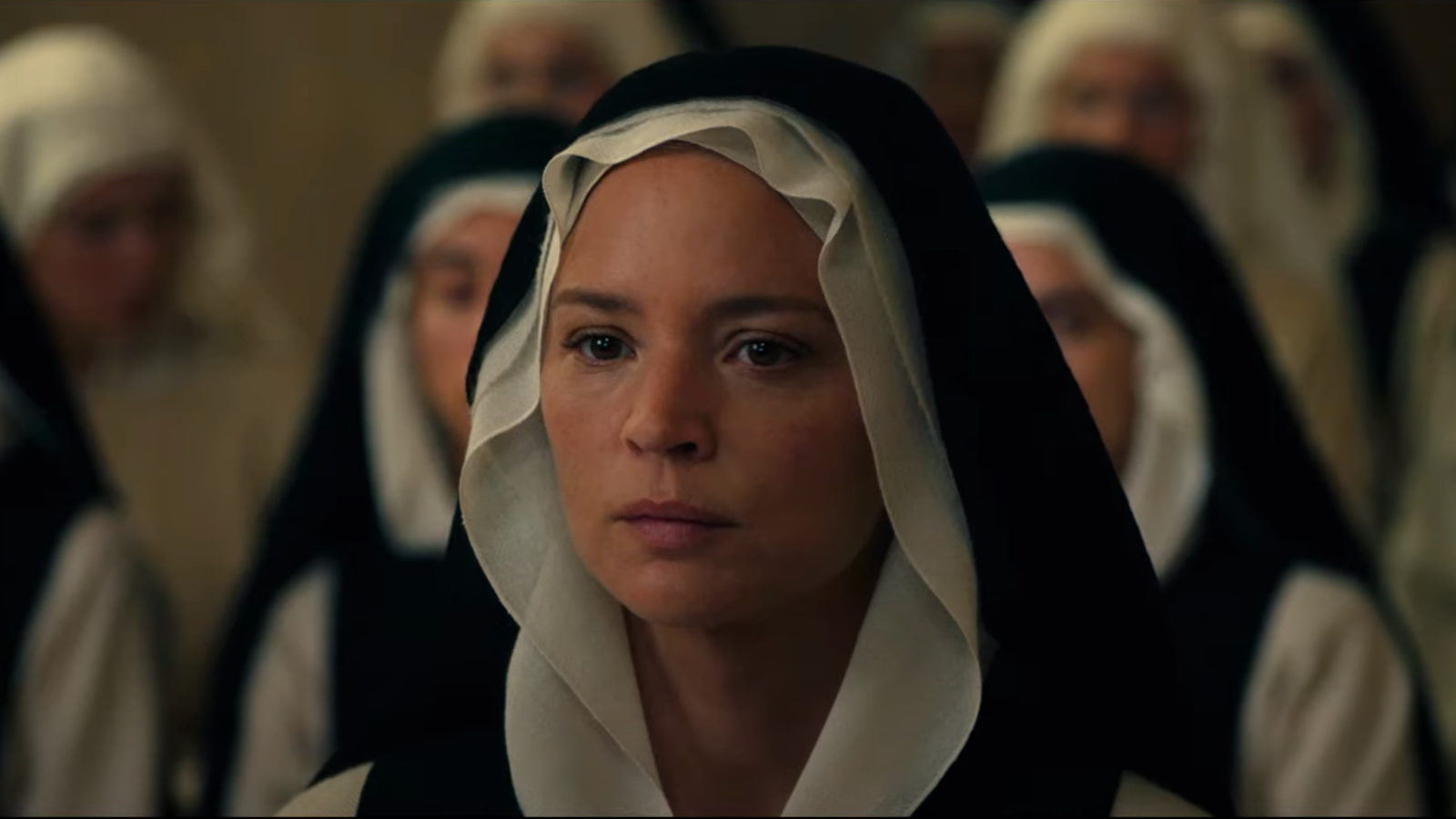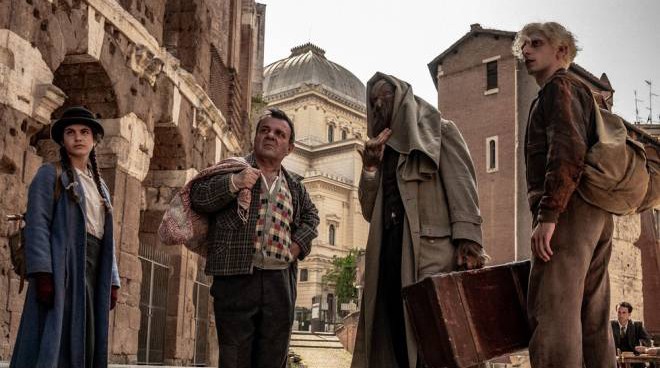Benedetta
Unfortunately, Benedetta meets none of the expectations that were built up and proves to be one of the greatest disappointments of the year.
A film that was presented as a psychological thriller about a nun who really existed and claimed to have mystical visions that lead her to have difficulties with the Catholic church, it is a film that features no psychological construction at all, and ultimately feels like an extended episode from a very anti-historical tv show rather than a film.
 |
Whenever something related to medieval culture is introduced, such as for example the sacred plays performed at church or gregorian chants, there is an element of blatant historical inaccuracy: the curtains for the play, the presence of paperback sheet music for the gregorian chants (the chants were written down in a single codex copy and to be learned by heart by the members of a given monastery), the way the choir conductor conducts are just some of the elements that can be easily detected. Additionally, the costume cuts, the makeup, the language used by characters (e.g. an improper use of cinical, a term that obtained its modern connotations only in the XVIII century), the overly clean settings, or the sequence in which Florence is depicted to have a hill – when anyone by googling the italian city can immediately notice that it is built in the middle of a plain – all of these point at a disdain for historical inaccuracy.
Moreover, a quick research of the original story will immediately reveal to anyone that the events have been tuned down and trimmed: gone are the best mystical visions that Benedetta claimed to have seen (and only few, less intriguing have been depicted), a continuous oversimplification has been employed, especially for the portion of the film concerning Benedetta’s trial. Upon reading the documented events, the impression is that they could have been depicted in a much more surreal fashion, with a Jodorowsky-like mystical chaos pervading every frame, a far superior film than the one that has ultimately been made.
Another question one might raise is why this film, based on an italian set subject, has been made by dutch filmmaker Paul Verhoeven with a french cast and crew, and not an italian one. Perhaps the industry that has produced in recent years the masterpieces of Sorrentino, Garrone, Mainetti, Sollima, Salvatores, Rovere and others was deemed insufficient, perhaps what dominated was the stereotyped concept that Italy is too binded to the catholic church to allow for such a controversial story to be made (even though numerous examples of such takes on church realated topics exist in italian cinema – take Sorrentino’s The Young Pope for example).
Considering the result, it is not italian cinema that is not worthy enough for Benedetta. It is Benedetta, that is not worthy enough, the way it was made, for italian cinema, or in general for international arthouse cinema.


Comments
Post a Comment